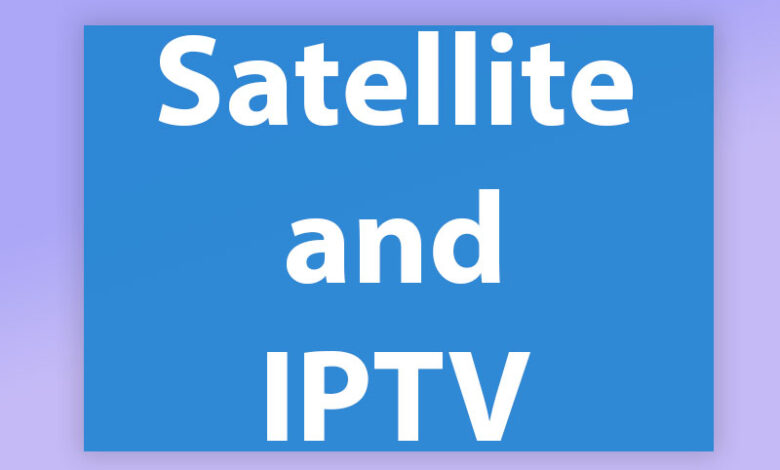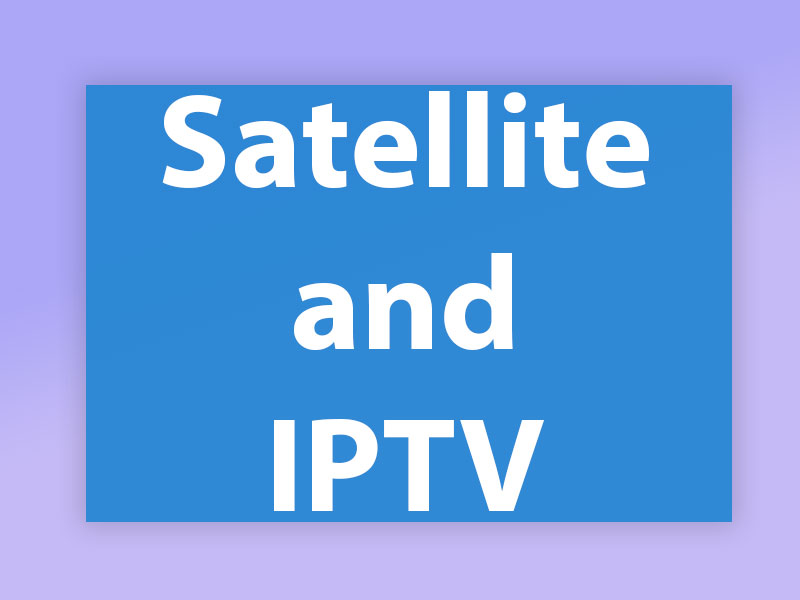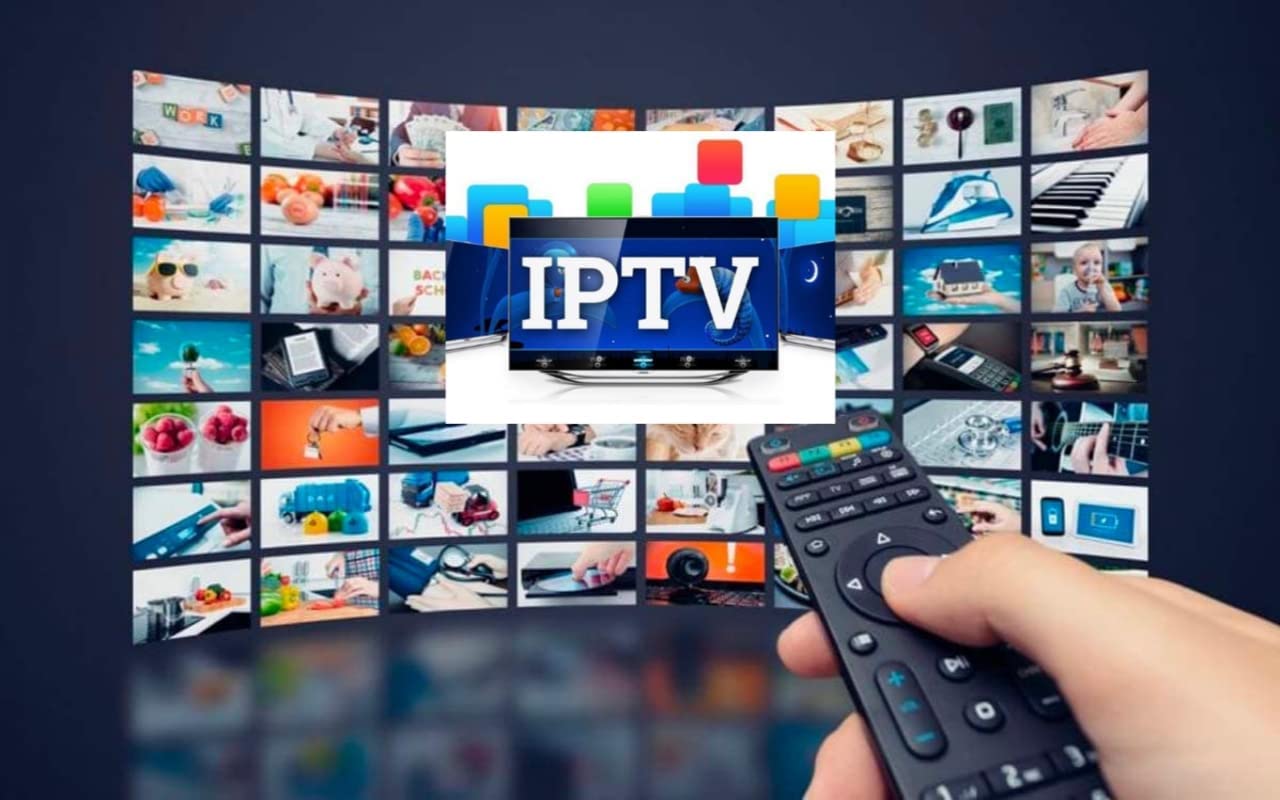Comparison between Satellite TV and IPTV: Which one is better?

When it comes to television viewing options, two popular choices are Satellite TV and IPTV. While both offer access to a wide variety of channels and programming, there are significant differences between the two. In this article, we will compare Satellite TV and IPTV to help you determine which option is right for you.
1: What is Satellite TV?
Satellite TV, as the name suggests, involves receiving television programming through a satellite dish that is mounted on your home or property. This dish is connected to a receiver that decodes the signal and sends it to your TV.
Advantages of Satellite TV:
One of the biggest advantages of satellite TV is that it can be accessed in remote areas where cable TV is not available. Satellite TV also offers a wide variety of programming options, including international channels and premium sports packages.
Disadvantages of Satellite TV:
One of the biggest drawbacks of satellite TV is that the signal can be disrupted by weather conditions, such as heavy rain or snow. Satellite TV also requires a clear view of the southern sky, which can be difficult in some areas. Installation costs for satellite TV can also be high.
2:What is IPTV?
IPTV stands for Internet Protocol Television and involves receiving television programming through your internet connection. This can be done through a set-top box or by using an app on a smart TV or mobile device.
Advantages of IPTV:
One of the biggest advantages of IPTV is that it can be accessed from anywhere with an internet connection, making it ideal for travelers or those who live in areas without access to traditional TV options. IPTV also offers on-demand programming, allowing viewers to watch their favorite shows or movies whenever they want.
Disadvantages of IPTV:
One of the biggest drawbacks of IPTV is that it requires a stable and high-speed internet connection to work properly. IPTV can also be more expensive than traditional TV options, and some channels may not be available through IPTV.
3:Comparison between Satellite TV and IPTV
Now that we have looked at the advantages and disadvantages of both Satellite TV and IPTV, let’s compare the two options directly.
Channel Selection:
Satellite TV typically offers more channels than IPTV, including international channels and premium sports packages. However, IPTV often includes on-demand programming options that are not available through traditional TV options.
Cost:
Satellite TV installation costs can be high, but the monthly subscription fees are often lower than IPTV. IPTV typically requires a monthly subscription fee, and additional costs may be incurred for on-demand programming.
Reliability:
Satellite TV can be disrupted by weather conditions, while IPTV requires a stable and high-speed internet connection. Both options may experience occasional outages, but IPTV may be more susceptible to buffering and other issues.
4:Which option is right for you?
Ultimately, the decision between Satellite TV and IPTV will depend on your individual needs and preferences. If you live in a remote area without access to traditional TV options, Satellite TV may be the better choice. If you prefer on-demand programming and have a stable and high-speed internet connection, IPTV may be the better choice. Consider your budget, channel preferences, and reliability needs when making your decision.
5: Comparison between Satellite TV and IPTV in terms of accessibility
Another important factor to consider when comparing Satellite TV and IPTV is accessibility. While both options offer a wide variety of programming, there are some differences when it comes to availability in different locations.
Availability of Satellite TV:
Satellite TV can be accessed in most areas around the world, including remote areas where cable TV is not available. However, installation may be difficult in some areas where a clear view of the southern sky is not possible.
Availability of IPTV:
IPTV is accessible from anywhere with a stable and high-speed internet connection, making it a great option for those who live in urban areas with high-speed internet access. However, it may not be available in remote areas or locations with limited internet access.
6: Comparison between Satellite TV and IPTV in terms of picture quality
Another important factor to consider when comparing Satellite TV and IPTV is picture quality. While both options offer high-quality programming, there are some differences when it comes to picture clarity and resolution.
Picture Quality of Satellite TV:
Satellite TV offers high-definition programming with a resolution of up to 1080p, providing crisp and clear picture quality. However, the signal can be disrupted by weather conditions, which can affect the picture quality.
Picture Quality of IPTV:
IPTV also offers high-definition programming with a resolution of up to 1080p, but the picture quality may be affected by internet speed and stability. A stable and high-speed internet connection is required to ensure the best possible picture quality.
7: Comparison between Satellite TV and IPTV in terms of additional features
Lastly, when comparing Satellite TV and IPTV, it’s important to consider additional features and benefits that each option offers.
Additional Features of Satellite TV:
Satellite TV often offers additional features such as DVR recording, which allows viewers to record and store programming for later viewing. Some Satellite TV providers also offer mobile apps, allowing viewers to watch programming on their mobile devices.
Additional Features of IPTV:
IPTV often offers additional features such as on-demand programming and the ability to pause and rewind live TV. Some IPTV providers also offer access to streaming services, such as Netflix and Hulu, through the same set-top box or app.
8: Conclusion
In conclusion, both Satellite TV and IPTV offer a wide variety of programming and benefits, but there are some differences to consider when choosing between the two. Ultimately, the decision will depend on your specific needs and preferences, including location, picture quality, and additional features. It’s important to do your research and compare options to ensure you choose the option that best suits your needs.






